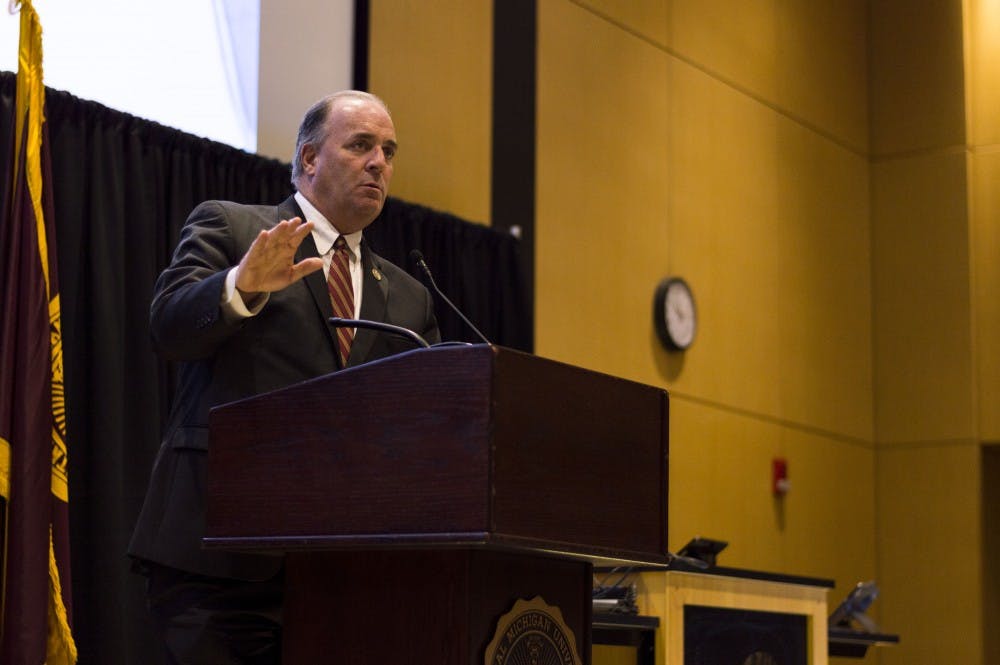Congressman, experts come together to discuss threats that plague the Great Lakes

Water is fundamental for most lifeforms, and Michigan's economy and inhabitants thrive on the fresh water that surrounds the state.
The fifth annual Great Lakes Science in Action Symposium gathered on Oct. 19 to discuss the current state of the Great Lakes and what the future holds for the lakes.
"The Great Lakes ecosystem defines who we are," said U.S. Congressman Dan Kildee, a democrat representing the fifth Congressional District for the state of Michigan.
The event was introduced by President Davies and featured a speech from Kildee. The event closed with two discussion panels with legislative aides and scientists. Kildee is a strong fighter for the Great Lakes Restoration Initiative (GLRI).
The GLRI aims to protect and restore the Great Lakes, which are the largest area of fresh surface water in the world. It is a federally funded organization from the Environmental Protection Agency.
President Trump and his administration cut the funding for the GLRI out of his budget. Kildee and his teammates successfully fought to win the $300 million funding back.
Senior legislative assistant Jordan Dickinson said that it is important to maintain and preserve the Great Lakes ecosystem.
"It's important that we see the lakes as vital," Kildee said.
Kildee said the government always looks for the immediate benefit rather than the long term benefit. He is trying to encourage others to look at the big picture and more than the immediate future.
Kildee is leading a bipartisan initiative to prevent a Canadian company from burying nuclear waste just one mile from the shore of Lake Huron.
While invasive species have been a prominent issue the Great Lakes face, Kildee said the biggest concern right now is PFAS.
Per and polyfluoroalkyl substances, known as PFAS, are man-made chemicals that have been linked to cancer and negative effects on the immune system. The issue arose when the military used a fire-fighting foam that contained PFAS and let it run into the ground water.
Kildee said a recent study was conducted by the government showing PFAS were 10 times more dangerous than the current health system suggests.
PFAS are not currently regulated by the U.S. government. The government is still learning about PFAS and the health impacts are still unknown, however, officials have deemed Mount Pleasant safe from the threat of PFAS.
Keeping the Great Lakes clean is a smart move for Michigan, as well as the Midwest.
Cleaning of the lakes provides economic benefit. Both immediately and in the long term. The lakes are used for recreational use as well as fishing, creating business for many lakeside towns.
"We must continue to step up and encourage members of congress to continue to fight for the GLRI," Kildee said.






